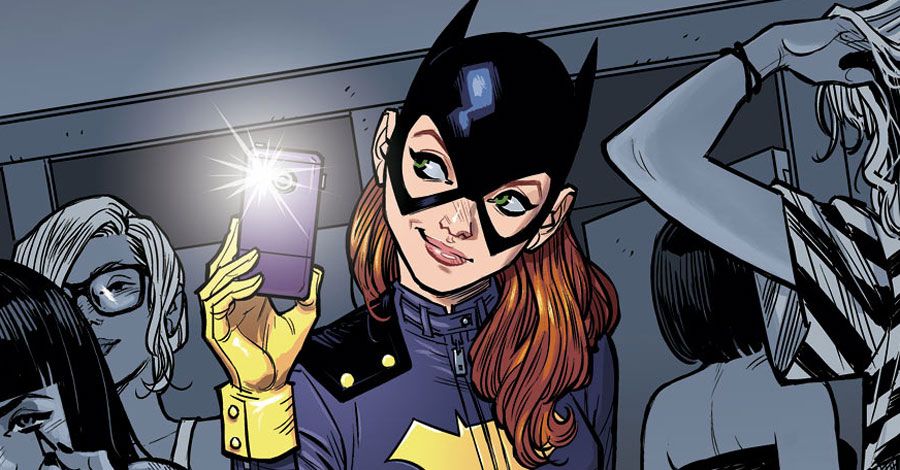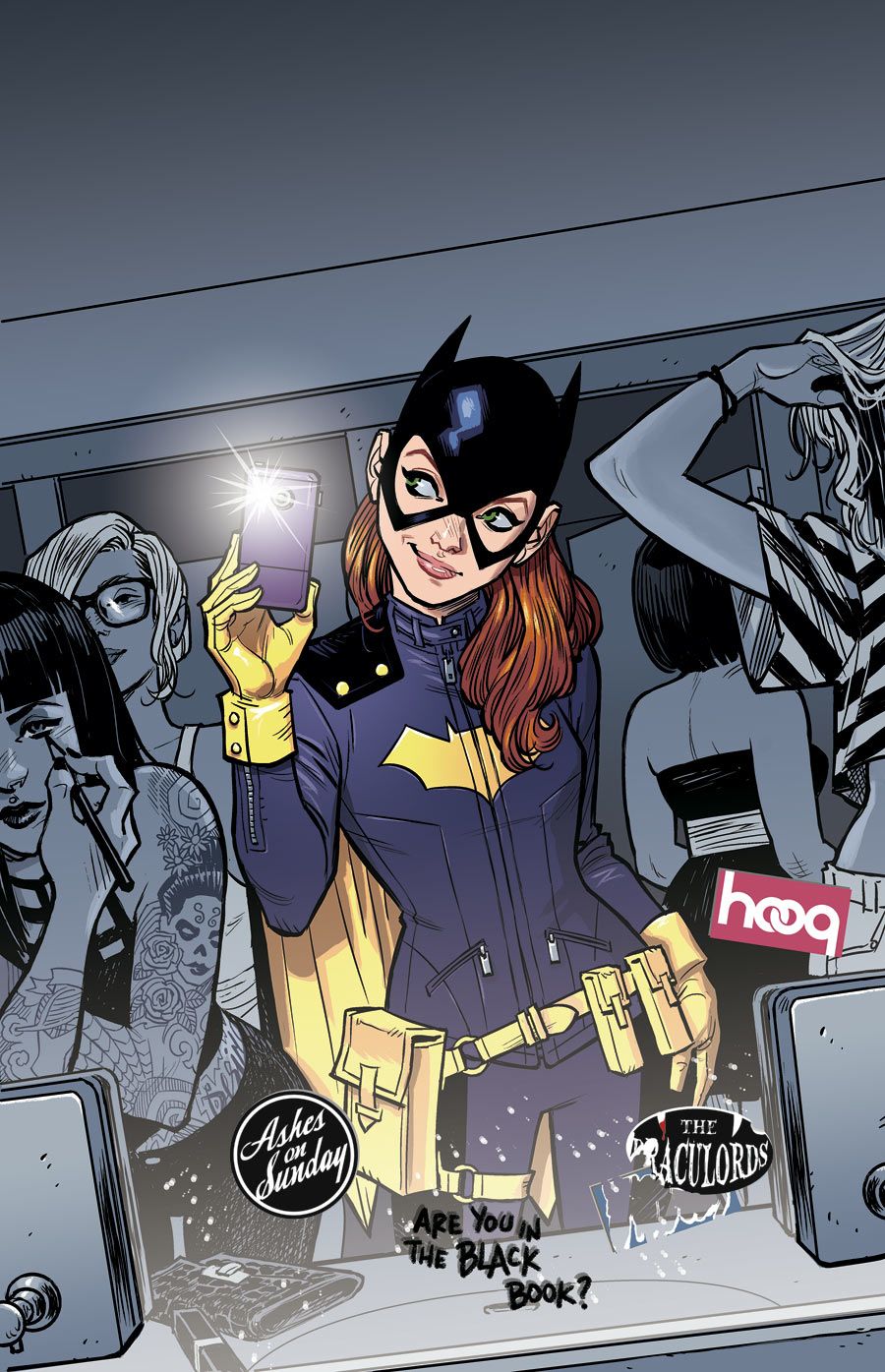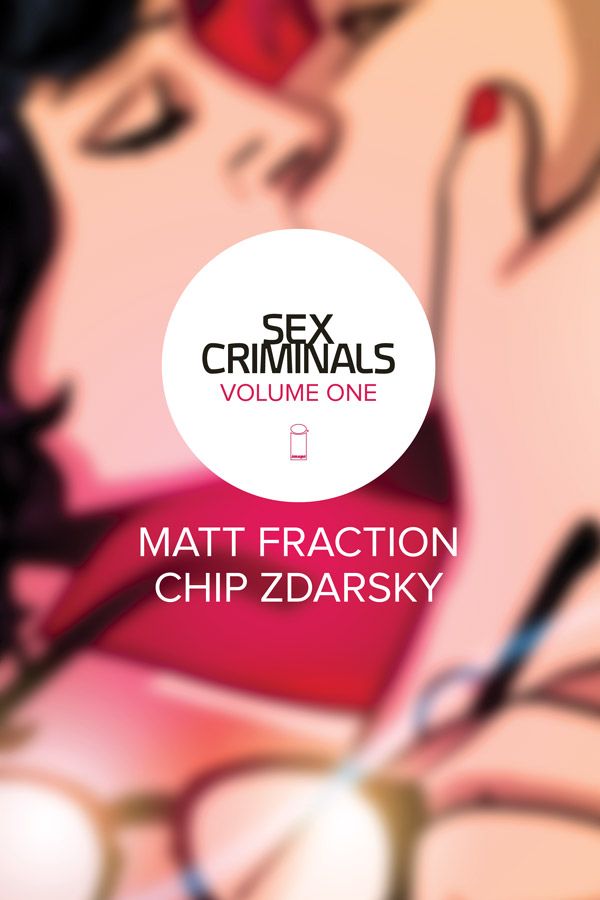Despite taking place first thing on Friday morning, plenty of fans showed up bright and early to attend this year's Gender In Comics panel at Comic-Con International. The panel for this iteration included noted comic book journalists, editors, writers and behind-the-scenes figures all currently working to further awareness of the gender issues within the comic book industry: Sarah Gaydos (editor, IDW Publishing), Andy Khouri (Editor in Chief, ComicsAlliance), Laura Hudson (writer, "Wired"; former EiC, ComicsAlliance), Dafna Pleban (editor, BOOM! Studios), Jennifer de Guzman (Director of Trade Book Sales, Image Comics) and James Tynion IV (writer, "Batman Eternal," "The Woods").
Moderator Janelle Asselin kicked off the panel with a simple yet daunting question: how do you define gender? "I think one of the things that is increasing in public consciousness is that gender is something that people get to define for themselves, and those are definitions that we have to strive to understand and respect," answered Hudson. "There's two sets of eyes involved in gender. There's the way we view ourselves, and then there's how other people view us. Often those two things can be very different. I think a lot of the conflicts we have are about the lack of understanding around those two perspectives."
The panelists quickly dispelled counterarguments claiming that important topics such as gender have no place being discussed in comics. None of the panelists thought comics should get a pass because they are "just comics." "We express ourselves and articulate our own identity through works we consume or works we produce," said Pleban. "It's also the stuff we subconsciously get affected by and don't realize. When you're an adolescent and you find this thing that speaks to you and don't know why it speaks to you just yet at that age, and then you get older and look back and go, 'That's why I was really into that thing! I recognized part of myself in this character!' Data, Data's the character."
"It's the thing we're most consuming at young ages," added Tynion. "It's how we build the world around us. It's our understanding through these comics and representation in there. If you don't see yourself reflected in the world you're building through fiction, whether in comics or entertainment, you start feeling like you don't belong in the world. You find your little connections and latch onto that."
The addition of the Internet, and social media like Tumblr, has changed the game for comics when it comes to representation and community. "The Internet is this great equalizer," said Gaydos. "It enables you to tell your own stories on your Tumblr or webcomic. But personally I feel like that's not enough, because the gatekeepers that I'm concerned about are more mass media. I still think, for a lot of people, that's their first touchstone. There's so much on the Internet that it's very hard to sometimes sort out the good from the bad."
The panel spoke about how engrained a lot of these false gender-based ideas have become thanks to decades of unchallenged existence. "A metaphor I use a lot is it's like working in a bell factory," explained Hudson. "If you work in the bell factory long enough you stop hearing the bells. I think super hero comics has stopped hearing the bells for a long time, but now you have other people coming in from the outside and [the gender issues in super hero comics are] very apparent. Having the Internet, having these other perspectives that are suddenly in front of us and are not subject to gatekeepers and are far more able to be heard exposes a lot of [these issues]."
Unlike pretty much every version of the future glimpsed in the pages of super hero comics, Tynion does see hope and real change coming to the medium in the future. "All of the other geek mediums have been really digging into the female readership for a long time. The people coming of age right now grew up on 'Harry Potter,' they grew up on 'The Hunger Games,' hell -- even 'Twilight.' That's training them towards genre fiction. There's no medium that does genre fiction better than comics... The next generation that's building up, the fanbase, I really believe it's predominantly female. All signs are pointing towards that, because that's what's been cultivated outside of the comics industry. To be frank, the comics industry hasn't been cultivating any future audience."
"We're making ourselves extinct," added Pleban. "We're not appealing to people that will keep this industry alive."
The panel turned their attention towards the kneejerk reactions expressed by the male fans -- fans that have been catered to by comics for decades. "If you've grown up in a situation where everything is about you and is catered to you, I think there is a degree to which equality can be perceived as oppression," said Hudson. "If you're used to having everything be about you, to some degree, and then suddenly it's not, I guess in a way you perceive that as oppression."
"Instead of opening up the pie," Gaydos quickly added. "People are going to feel like it's exclusionary."
"But you have all the slices!" said Pleban. "Let me just have five of all the slices. That's enough slices. You can't be mad that you don't have the whole pie. You can have three fourths of the pie, is that cool?"
Gaydos added a deliciously inclusive solution: "Make a bigger pie, it'll be awesome!"
"The top level problem in comics is probably the direct market," said Khouri to a round of applause. "Not against comic book stores specifically; it's the system."
"There's no real entry point," said de Guzman, speaking from her own experience of trying to get into comics in high school and being met with gender-based skepticism at her local comic shop. "It's changing. We're really good friends with some of the Valkyries. The Valkyries are a group of women who work in comic book stores and they do informal events, book clubs, they champion certain books. They were really integral to helping us get the word out about 'Sex Criminals' to women."
"I think in comic shops, it's sort of the #YesAllWomen of comics," added Asselin. "Every woman I know has that story of going into a shop, being treated terribly, and not wanting to go back. It's not all comic shops, but it is a lot of them."
When it comes to the comics sold in those stores, though, some of the panelists realize now that they have the power to enact change from within the system. "I think -- Dafna and I could probably agree -- I realize more and more that I am the gatekeeper now," said Gaydos. "I take that responsibility unbelievably seriously. As I'm growing in my role as an editor with more seniority year after year, I make decisions that I make with more of a priority towards gender and diversity in mind."
"What's really cool is we've started a nail club," Pleban said excitedly about her experience working for BOOM! Studios as it has reached an even gender ratio. "Everyone brought their nail polish and now we have a nail rack with designs."
Most every panelist revealed that they now work in an office with an equal gender split, but that doesn't mean the fight is close to being over. "The sexism beat is not an easy beat," Hudson said about her job working as a freelance entertainment writer. "If I just write about cool things and how much I love them, my life is a lot easier -- so much easier... But there are ways in which I feel that it's important, but also that there are multiple ways to combat sexism. In the same way that female writers don't always necessarily have to write about women all the time, I don't think that sexism is the only way that I can talk about these issues. Speaking positively about women and their work can be just as important as talking about when things are horrible -- in some cases even more important. Finding female voices and elevating them in ways that aren't related to the horrible things happening to them, I think can be extremely important."



